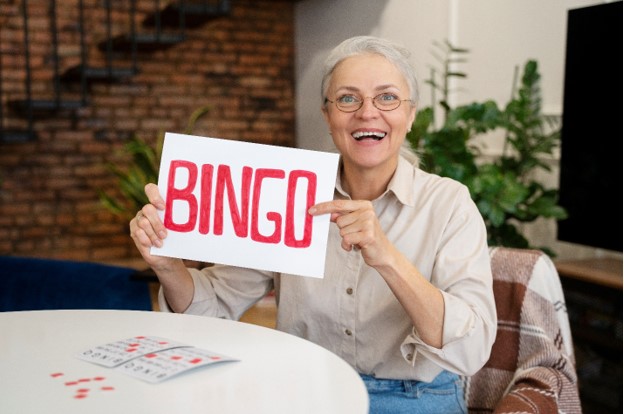Bingo has been a game with a diverse history that spans many countries and over many decades. It originally began in Italian game halls when the ‘Lo Giuoco del Lotto D’Italia’ or Italian lotto was a well-liked pass time. However, when the rest of Europe caught sight of the game, it spread like wildfire until it settled on the shores of the United Kingdom.
Now arguably more popular in the UK than anywhere else in the world, bingo has become part and parcel of the English culture, and you would be forgiven for thinking it has its roots in the country. But how has bingo come to be such a prominent fixture in the British gambling scene?
This article will look at the history of the game in the UK and how it has evolved through the years so you can have a better appreciation while you play bingo games.
Introduction of Bingo in the UK
After bingo became a hit with the Italian people, it spread to France, where the aristocracy also took a liking to the game. Then at some point in the 1800s, bingo made its way across the channel and into Britain to a modest reception. However, the game really took off in the second half of the 20th century during and after the Second World War.
When the 1960 gaming act also standardised gambling regulation in the UK, it saw a proliferation of large jackpots in bingo. This attracted many people to the game, which precipitated the opening of large bingo establishments across London and the country, which saw its seed in the English hearts.
In addition, many theatres and cinema halls got reclaimed as bingo halls as businessmen rushed to take advantage of the new opportunity. As a result, bingo slowly became the most prominent form of entertainment in London, which later slowly spread to the rest of the country.
However, bingo was not known initially as bingo but beano. Legend has it that during a game in one of London’s back ally games, a patron got so excited after matching a line of numbers that he yelled bingo instead of beano. The name stuck, and as you would say, the rest is history.
At its height in the 1990s, an estimated half a million Brits were playing the game each day. However, a change in consumer behaviour saw a decline in this number and bingo as well.
Bingo’s Decline in the UK
As Brits got ready to usher in the new millennia, their consumption behaviours and preferences changed, and so did how they wanted to spend their free time. Bingo no longer seemed as appealing as it did in past times as more technological stuff and the dot com era loomed closer.
During this period, bingo gained a reputation as an old’s people game in the countryside. London was especially hit hard as a third of all bingo operations in the city went out of business and had to close down.
In addition, this era also saw the strict regulation of gambling operations by the authorities, who had introduced higher taxes and banned smoking in bingo halls. Naturally, these moves were not taken kindly by the people and only hastened their search for other alternatives. Unfortunately, as all these factors played a role in bingo’s decline, the main contributing factor was its refusal to change with the times.
However, the invention of the internet gave bingo a second chance at reinventing itself, and bingo hall owners quickly jumped at the opportunity. They traded town halls for online spaces, and Brits got the technological hit they were looking for. This quick adaption of the internet might have been the thing that saved bingo from going extinct in the UK.
Bingo’s Dot Com Era
Even though the earliest iterations of bingo websites were rudimental compared to today’s standards, they did, however, keep the public’s interest in the game. They also allowed the operators to rebrand and introduce new versions of the game, which in turn, ushered in a new generation of players.
During this time, the media joined the bandwagon and bingo content saw a surge. Radio and TV shows dedicated to the bingo community helped unite bingo players across the country. Bingo news articles, advertisements, and campaigns also increased and helped attract more players to the game.
In 2002, a nationwide campaign looked to popularise bingo by showing prominent people playing the game. This introduced more young women to bingo and helped give it a younger and more diverse face and not just an old’s people thing.
The internet also helped usher in chatrooms where players could play and communicate from where they were playing, introducing a convenience never seen before in bingo. In addition, it allowed for the incorporation of other games on the same site without affecting bingo players. For example, bingo halls could only host bingo games, but now operators and players were free to explore other gaming options.
Conclusion
Bingo has had a long and adverse journey that has seen it hold a special place in many people’s hearts, more so Brits than most. It has also gone over a few evolutions to get to what it is today but has amazingly still managed to keep the allure that attracted many all those years back.
Its history is full of tales of great wins and losses, and we are glad to say that it’s still being written. But with this content, we hope we have given you a glimpse of its past, and you’ve gained a greater appreciation for the game. So what is your most memorable bingo moment?


